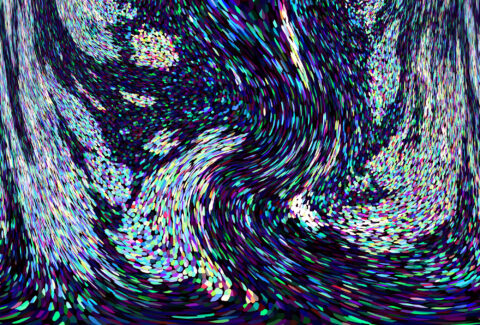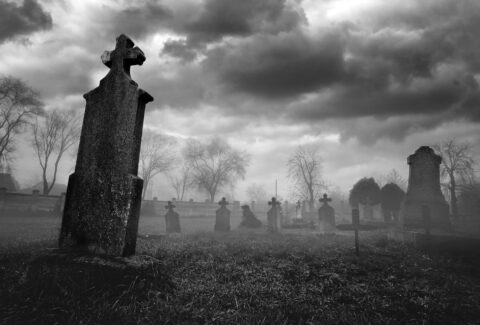Awareness of Mortality and Existential Therapy
Introduction
The awareness of our mortality is a central theme in existential therapy.[1] The inevitability of death can evoke a wide range of emotional responses, from existential anxiety to a profound desire to find meaning and purpose in life. However, rather than avoiding or suppressing this awareness, existential therapy encourages individuals to face it directly and use it as a catalyst for personal growth, self-reflection, and deeper engagement with life.[2] In this context, mortality is not a source of despair, but an invitation to live more authentically and meaningfully.
Mortality in Existential Philosophy
Existential thinkers, particularly Heidegger, Sartre[3], and Kierkegaard[4], emphasized mortality as a key factor in understanding human existence. Heidegger argued that the awareness of death is essential for understanding what it means to truly “be.” He described this awareness as Being-toward-death, a confrontation with the finitude of life that allows individuals to embrace their authentic existence. For Sartre, the realization of death underscored the freedom and responsibility of human life; by acknowledging that our time is limited, we are forced to confront our choices and create meaning.
The Role of Mortality in Existential Therapy
Existential therapy integrates the awareness of mortality into the therapeutic process in several ways.[5] The goal is not to focus solely on death but to use it as a lens through which individuals can examine their values, relationships, and life choices.
- Awakening to the Present: An awareness of mortality brings us face to face with the impermanence of life. In existential therapy, this awareness often leads to a deeper appreciation of the present moment.[6] By understanding that time is limited, clients may be more inclined to prioritize what truly matters to them, whether it’s relationships, personal passions, or making a meaningful contribution to society.
Reflection: How often do you find yourself caught up in the past or future, rather than living fully in the present? What would happen if you allowed the awareness of mortality to sharpen your focus on the now?
- Existential Anxiety: The awareness of mortality frequently evokes existential anxiety.[7] This anxiety is not pathological but rather a natural part of human experience, signaling our recognition of life’s fragility. Rather than avoiding this discomfort, existential therapy encourages clients to confront it, understand its sources, and use it as an opportunity to make conscious choices about how they live.
Reflection: When you feel anxious about mortality, how do you usually respond? How can you transform that anxiety into motivation to live more meaningfully?
- Facing Regret and Unfinished Business: As individuals reflect on their mortality, they often confront feelings of regret or the realization of unfinished business. These feelings can be powerful motivators to change and take action before it’s too late. Existential therapy encourages individuals to explore their regrets and consider what steps they can take now to resolve these feelings and live in alignment with their values.[8]
Reflection: Are there aspects of your life you feel you have neglected or left unfinished? What actions can you take now to address them?
- Creating Meaning: Existential therapy places significant emphasis on meaning-making. Frankl’s concept of logotherapy[9] suggests that the search for meaning is a fundamental human drive, particularly in the face of suffering and death. The awareness of mortality can push individuals to seek deeper meaning in their lives, whether through relationships, work, creative endeavors, or contributions to society.
Reflection: What gives your life meaning? How can you use your awareness of mortality to deepen your commitment to that meaning?
The Benefits of Mortality Awareness in Therapy
- Increased Presence: Recognizing that life is finite can help clients develop a greater sense of presence in their everyday lives.
- Empowerment: Facing mortality directly often leads to a sense of empowerment, as individuals take ownership of their choices and the way they live.
- Clarity of Values: The awareness of death can clarify what truly matters, helping clients prioritize their goals and relationships.
- Resilience: Confronting mortality can foster resilience by helping individuals accept life’s inherent uncertainties and imperfections.
Practical Applications in Existential Therapy
- Existential Reflection: Therapists can guide clients through exercises that encourage them to reflect on their own mortality, such as writing letters to their future selves or exploring the legacy they wish to leave behind.
- The “Deathbed” Question: A common tool in existential therapy is to ask clients to imagine themselves on their deathbed, reflecting on their life. What would they regret not having done? What would they wish they had spent more time on? This exercise can help clarify life priorities.
- Existential Confrontation: During therapy, the clinician may gently bring up existential themes such as mortality, helping the client process any fears or anxieties surrounding death and how these fears may be affecting their present choices.
Reflection Questions for Clients
- If you knew your time was limited, how would you spend the time you have left?
- What parts of your life do you avoid thinking about because of the discomfort they bring? How can you approach them with courage and clarity?
- What legacy do you hope to leave behind, and how can you start building it today?
Conclusion
The awareness of mortality is not something to fear or suppress. Instead, it can serve as a powerful tool in existential therapy, helping individuals confront their fears, embrace their freedom, and create a life that is meaningful and true to themselves. By acknowledging the inevitability of death, individuals can live with greater intentionality, authenticity, and presence, turning the awareness of mortality into a source of inspiration for change and personal growth.
[1] Vos, Joel. “Death in existential psychotherapies: A critical review.” Curing the dread of death: theory, research and practice 145 (2018).
[2] Haddock, Mark. Existential Therapists’ Perspectives on Encouraging Clients’ Exploration of Meaning and Death. Diss. University of Huddersfield, 2019.
[3] Schuster, Shlomit C. “The practice of Sartre’s philosophy in philosophical counseling and existential psychotherapy.” Iyyun: The Jerusalem Philosophical Quarterly/עיון: רבעון פילוסופי (1995): 99-114.
[4] Shchyttsova, Tatiana. “KIERKEGAARD’S EXISTENTIAL THERAPY AND THE PROBLEM OF THE SUBJECT.” Topos (18150047) 1 (2014).
[5] Sadri Demichi, Esmaeil, and Shokofeh Ramezani. “Effectiveness of existential therapy on loneliness and death anxiety in the elderly.” Aging Psychology 2.1 (2016): 12-1.
[6] Yen, Chih-Long, et al. “Does awareness of death strengthen awareness of self? The effects of existential threat on self-focus.” Current Psychology 40 (2021): 1-6.
[7] Gandy, Sam. “Dying to live: The power of transcendence in the treatment of existential anxiety.” Threshold: Journal of Interdisciplinary Consciousness Studies 1.2 (2017): 25-36.
[8] Effiom, Bassey Ekeng, et al. “Counselling The Near Death on the Frustration, Depression, Anxiety of an Uncompleted Career Before Death.” International Academic Journal of Medical and Clinical Practice 7.4 (2022): 7-13.
[9] Frankl, Viktor E. “Logotherapy and existentialism.” Psychotherapy: Theory, Research & Practice 4.3 (1967): 138.







